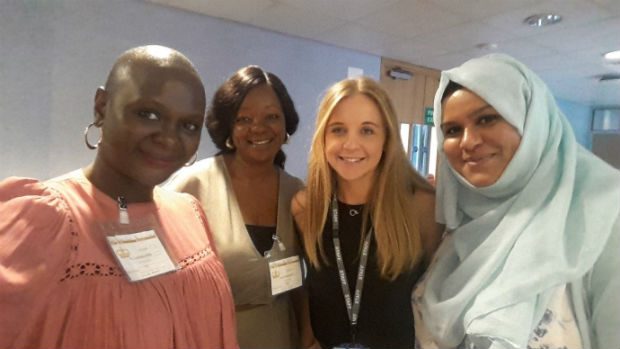
Sickle cell disease (SCD) affects lots of families in sub-Saharan Africa, especially in Nigeria. In fact, most people there will know someone with SCD.
Because of the number of people affected, a group of researchers formed the African Research and Innovative Initiative for Sickle Cell Education (ARISE). This Marie Skłodowska-Curie project involves 15 institutions in the European Union (EU), Africa, Lebanon and the US.
The main objective of the group was to establish a staff exchange programme that would empower trainees with the necessary skills to implement newborn SCD screening when they returned to their own countries.
UK bound
Before we go any further, we'd like to introduce ourselves. We are Larai Diana Gwani and Nasara Danmaida Ifere from Nigeria.
To learn more about newborn screening for sickle cell, we recently travelled to the UK to do some training with a number of institutions, including Public Health England (PHE) Screening.
Here, we met with Jamili Miah and Robyn O’Loughlin, project leads for the NHS Sickle and Thalassaemia Screening Programme.
As part of our training we looked through the PHE resources including:
- parent information leaflets
- programme handbook and standards
- e-learning
- the newborn outcome system
We also discussed how the SCT screening programme does outreach and engagement work with the Sickle Cell Society and the UK Thalassaemia Society.
Lessons to take away
From our training, we learned:
- how important it is to have regular engagement with researchers, because research can take a long time and priorities can change
- how important it is to identify patients as people we need to engage with
- that successful focus groups should be made up of the people who are using the resources
- how antenatal screening is linked to newborn screening for SCD
A productive day at PHE
We looked at the major differences between sickle cell education in the UK and Nigeria, as well as the impact of culture, religion and social issues, and the challenges these can cause.
During the day, we also shared some personal stories to support our views. The session was semi-formal but very effective.
After the training, we left with a better understanding of how to coordinate newborn screening.
This included learning about the management of patients using the newborn outcome system, which links with the National Haemoglobinopathy Register.
We left the training feeling satisfied, and we also made some new friends in the process. We have promised to keep in touch and update our tutors as we continue with our projects.
PHE Screening blogs
PHE Screening blogs provide up to date news from all NHS screening programmes. You can register to receive updates direct to your inbox, so there’s no need to keep checking for new blogs. If you have any questions about this blog article, or about population screening in England, please contact the PHE screening helpdesk.